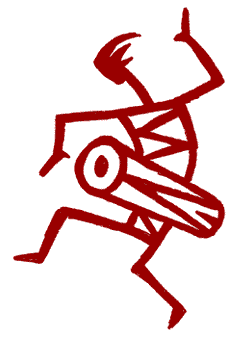

Thought of the Week Archives |
 |

|
|
|
November 11, 2002 The Key to Human Health When we get tree seedlings from the nursery, they come with instructions for "care and feeding." These instructions give the owner a guideline of everything the little tree needs - from planting and soil to water and sun - in order to grow to its full genetic potential. Similarly, when a plant or tree is stunted, with withered leaves, few flowers, and deformed fruit, it is useful to know the ideal environmental needs of its species. By comparing that knowledge with the tree's present environment, we can determine how it is being abused and/or neglected, and we can attempt to deliver the care and conditions that will fill its essential needs. Within those conditions, the tree will once again be able to grow toward its full potential. In order for a living thing to reach its potential, it must have its essential needs met. In the smallest seed of life this potential is an organic ideal - perhaps the genetic code - that consists of needs and the full adult form that can be reached if those needs are met. Acorns don't occasionally become groundhogs. There is something in that little acorn that knows what it is and what it can become. All living things are the same in this respect. There is an inner organic knowledge in the human zygote that knows what it means to be fully human. In its movement toward full adult potential, the person - from embryo, baby, to child - will attempt to get his or her needs met. If these needs are not met and the resulting pain is too great, the system splits and hides the pain from consciousness. Like a tree planted in poor soil, the child will become a sick adult. We can help a sick tree if we know the ideal conditions of its species. Without that knowledge, we are lost. Similarly, if we want to help sick humans, we have to know what it means to be a healthy human. If we want to know what the true nature of a cypress tree is, we don't look at the potted bonsai version, we go to a swamp. If we want to know what the true nature of a monkey is, we do not go to the circus, the zoo, or the laboratory, we go to the jungle. A wild animal in its natural habitat will present the information we need to know. Therefore, to know the true nature of a human, we have to encounter wild humans in their own habitat, the way they've lived for hundreds of thousands of years. Unfortunately, there are very few, if any, wild humans left on the planet. This problem is compounded by the fact that some tribal societies show signs of emotional illness in their oppressive authoritarian structures and mistreatment of women and children. Wild hunter-gatherer humans are hard to find. Historical records from North American native cultures, and present-day experience with existing stone-age cultures, can give us excellent clues. In the book The Continuum Concept, author Jean Liedloff describes the lifestyle and childrearing activities of the Yequana natives of South America (http://www.continuum-concept.org.) Accounts such as these give us an invaluable insight into what it means to be fully human. With this information, we can begin to take care of the withered plant that is today's modern person. In my April 1, 2002, Thought, "Being Natural - Without Artifice," I present the basic developmental human needs:
• to be unconditionally valued As a contrast, my February 11, 2002, Thought, "Civilized Children" outlines the neglect and abuse that modern children often suffer. It is "poor soil" indeed. To be healthy, we have to know what health looks like. This is as much about culture and caring as it is about the physical requirements of adequate food and shelter. To do this we must research natural human life, watch the ways of wild animals, pay attention to little children - and listen to our own growing primal awareness. Knowing wild human nature is not a romantic ideal - it is a necessity. We ignore it to our own peril. After many years of personal research and experience, I have developed a picture of human health:
|